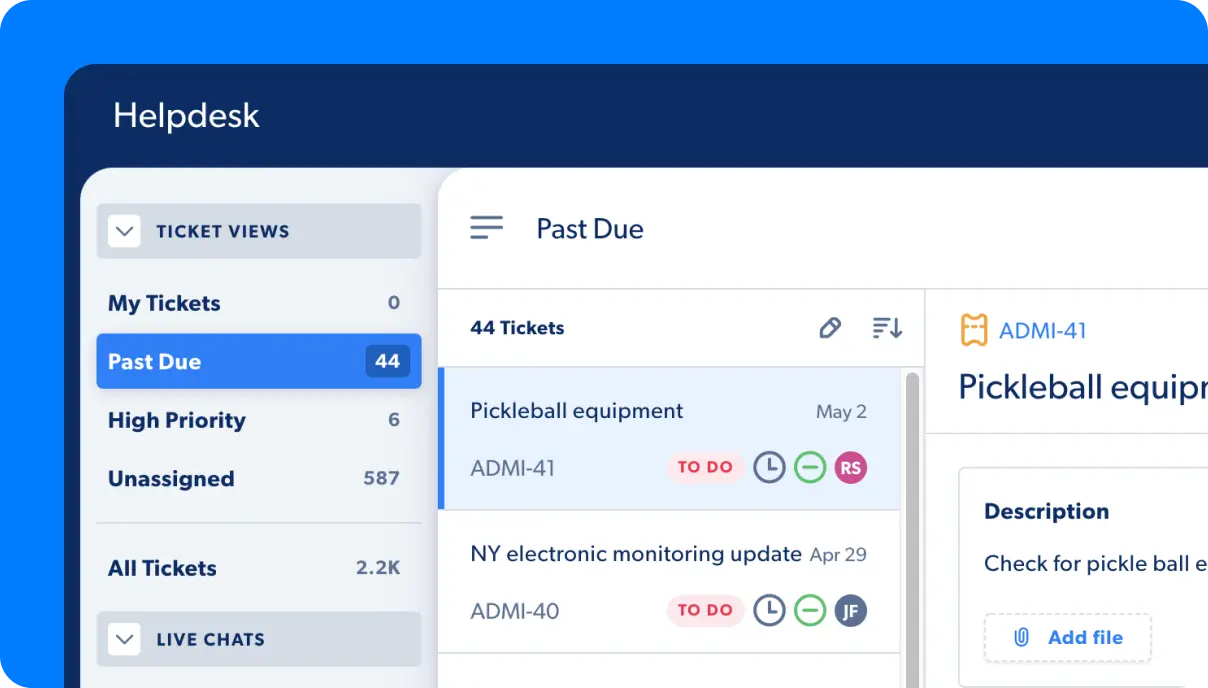The world is rapidly changing, and knowledge is a powerful asset for any enterprise. Businesses must stay competitive by embracing technology like never before – including using Artificial Intelligence (AI) and automation. We created this guide to help companies understand what knowledge management is, how AI and automation play a role, and how to implement knowledge management systems in your business.
What is knowledge management?
Knowledge management (KM) is the key to unlocking valuable information inside an organization. By effectively identifying, organizing, storing, and sharing knowledge within a company, you can conserve time that would otherwise be wasted trying to find essential info and data. This cost-saving strategy enables your business to focus on achieving successful results instead of endlessly searching through a sea of cluttered information and data.

Organizations that leverage a knowledge management system (KMS) reap the rewards of improved operational efficiencies. Knowledge bases provide an essential foundation to support KMS, as they furnish organizations with centralized places to amass and access information quickly. Such systems are indispensable for successful knowledge management initiatives.
Importance of knowledge management
By deploying knowledge management throughout your organization, you provide teams with the data and resources they need to perform their jobs efficiently. Furthermore, this strategy offers long-term benefits for businesses to leverage over time to create an environment of efficiency that ultimately results in a superior work experience and less mundane tasks.
Here are a few knowledge systems benefits:
- Improved business workflows
- Decreased shoulder taps between internal teams
- Increased employee productivity
- Better customer service, leading to increased customer satisfaction
- Finding documents and data within seconds instead of hours
These are just a few examples of the types of knowledge management tools available on the market today. From AI-powered automation to customer service knowledge bases, there are a variety of tools and technologies that companies can use to help organizations better manage their knowledge and resources.
5 Knowledge management best practices
Implementing best practices to reach the whole knowledge management potential is essential. Here are five of the most common:
1. Use a knowledge base to manage content and resources in one place
Centralizing your business’s knowledge and resources in one place is essential for efficient knowledge management. With a knowledge base, your important documents and assets can be managed and stored in a single repository. This helps streamline your content management processes by eliminating the need to search through multiple storage sources.
This will save time and enable teams to access the information they need quickly and easily, empowering them to work faster and wiser. Think of a knowledge base like a swiss army knife for your content management issues – it’s got everything you need in one place.
2. Communicate efficiently with involved teams and host training sessions
Communication is essential for successful knowledge management. To ensure everyone involved in the process is on the same page, it’s necessary to keep teams up-to-date with regular updates and host training sessions to educate them on how to use the knowledge base effectively. This will enable employees to work efficiently and get better results by ensuring they have all the knowledge they need to do their job right.
Communication is the key to unlocking knowledge management success – without it, you might as well be trying to open a safe with a rubber chicken!

Automate Your Work
Capacity’s enterprise AI chatbot can help:
- Answer FAQs anytime, anywhere
- Find relevant documents within seconds
- Give surveys and collect feedback
3. Establish data governance protocols to ensure information is accurate and up-to-date
Having accurate and up-to-date data is essential for successful knowledge management. It’s crucial to implement a series of governance protocols that will help keep your records current, ensuring that your team has access to the most reliable information. By implementing oversight processes that monitor content accuracy and establishing data curation guidelines, you can guarantee that teams are always looking at the most accurate and up-to-date information.
Furthermore, an up-to-date knowledge management system enables teams to troubleshoot and solve problems quickly, improving customer service and satisfaction. Therefore, if you want your organization’s knowledge management initiatives to be successful, it’s essential to ensure your knowledge system is regularly updated with the most accurate information possible.
- Determine who has access to knowledge to prevent sensitive data from being leaked
A clear structure to determine who can access your business’s knowledge is key to successful knowledge management. Establishing a system of permissions and protocols will ensure that the right people have access to the correct information while preventing sensitive data from being leaked outside the organization.
This type of security protocol helps keep your teams secure and safe, safeguarding your data to maintain its integrity. If your knowledge management system isn’t secure, your team can only open a can of worms!
- Use tools such as AI and automation to streamline knowledge management processes
Nowadays, using tools such as AI and automation to streamline knowledge management processes is a no-brainer. AI-powered solutions can help organizations better manage their knowledge by automatically organizing information, providing personalized recommendations, and assisting teams in finding the resources they need quickly. When an intelligent knowledge system pairs with an AI chatbot, users can instantly add knowledge to the knowledge management software without human intervention.
Automation also helps reduce mundane tasks like data entry or content curation, thus freeing up employees to focus on more strategic activities. This will save time and lead to increased efficiency and better customer service, making AI and automation an invaluable part of any knowledge management strategy.
AI-powered enterprise knowledge management platforms like Capacity can transform how teams organize tacit knowledge. Get started with Capacity for free today!













































